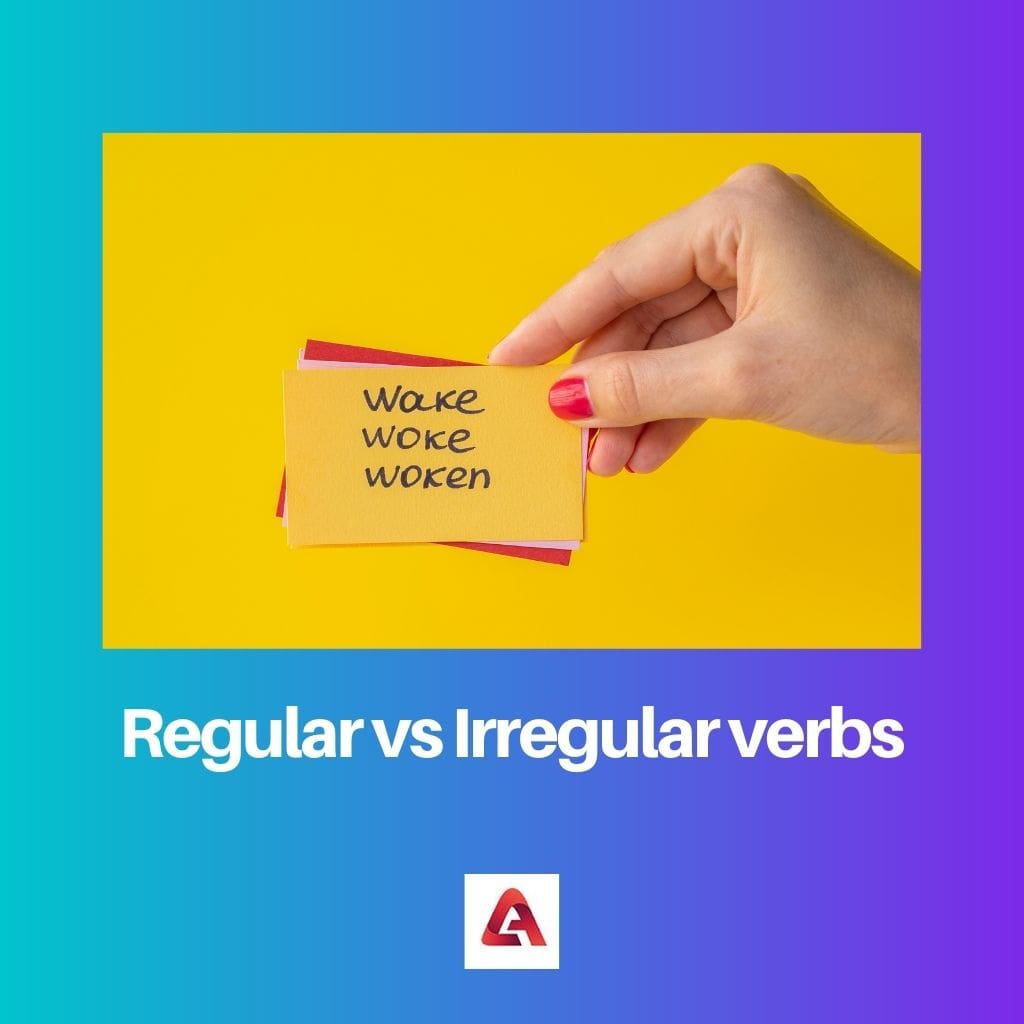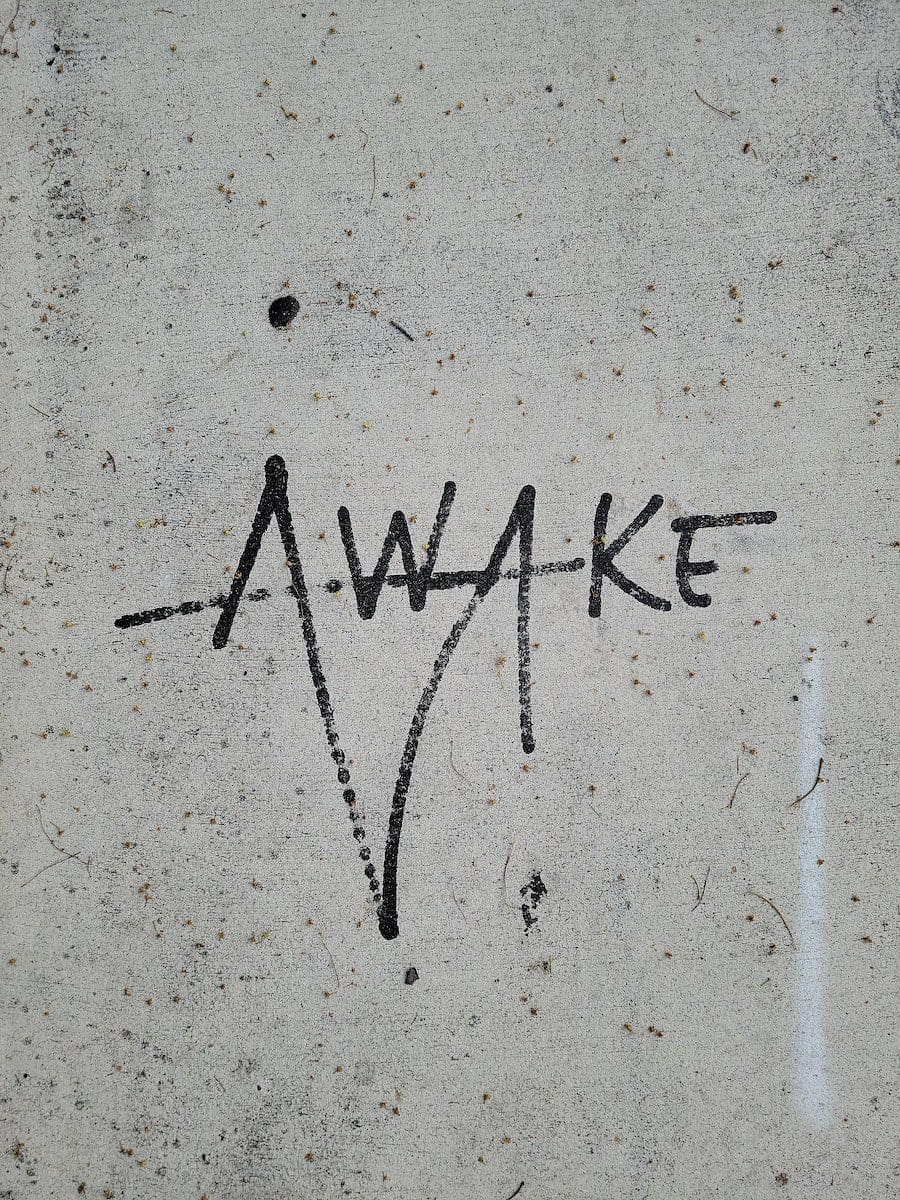Verbs are an essential part of English Grammar because they help individuals fuse words into sentences to regularly converse about different circumstances that had taken place in their lives.
In English Grammar, a multitude of verbs is regular verbs. Even so, there are a significant number of irregular verbs too.
Key Takeaways
- Regular verbs follow a consistent pattern when conjugated in different tenses, by adding “-ed” to the base form for past and past participle forms in English. In contrast, irregular verbs have unique conjugations that do not adhere to a standard pattern.
- Regular verbs have predictable endings, making them easier to learn and use, whereas irregular verbs must be memorized individually due to their inconsistent conjugation patterns.
- Both regular and irregular verbs are essential components of language, but irregular verbs require additional effort to master due to their non-standard conjugations.
Regular vs Irregular Verbs
The difference between regular and irregular verbs is that certain verbs whose past simple and past participle forms have an orderly or systematic conjugation pattern are called Regular Verbs. In contrast, several verbs whose past simple and past participle tenses either remain the same or are modified entirely without following conjugation patterns are known as Irregular verbs.

Comparison Table
| Parameter of comparison | Regular verbs | Irregular verbs |
|---|---|---|
| Meaning | Regular verbs are those verbs where the past simple and past participle of the verb ends with either a –ed or –d. For example: cook, cooked, cooked. | Irregular verbs do not have a specific formula to indicate them in their past simple and past participle. For example: cut, cut, cut or run, ran, run. |
| History | Regular verbs were found later in the English Language. | Verbs which were stemmed from Old English were irregular. |
| Pattern | Regular verbs have the conjugation (a word utilized to associate sentences) pattern. | Unlike regular verbs, Irregular verbs do not have to follow systematic conjugation patterns. |
| Past simple and past participle forms | Regular verbs don’t have to undergo crucial changes in their simple past and past participle forms as they change states. | Irregular verbs may sometimes have a different or similar past simple and past participle form. |
| Majority | There are about 600 regular verbs. Hence, there is a majority of regular verbs. | As opposed to regular verbs, there are nearly 200 irregular verbs. Hence, there are not many irregular verbs when compared to regular ones. |
| Rules | Regular verbs follow their standard guidelines to create past simple or past participles. | Irregular verbs have their own set of rules when creating past simple. |
What are Regular Verbs?
Regular verbs are otherwise known as weak words as they follow the standard principle of the English Language by adding -ed or -d to the base of the term to create its past forms. For example, play, played, played.
General rules to follow when to use regular verbs
- When the base forms of regular verbs have a verb which ends with a vowel or a consonant, except for the vowel e, the past simple and past participle tenses of that verb ends with –ed.
For example:
| Base form | Past simple | Past participle |
| Look | looked | looked |
| Tattoo | tattooed | tattooed |
For example, She looked for her son at the shopping mall.
- Regular verbs have the same past simple and past participle. When a verb ends with a consonant or a –y, we replace the –y with an –i and add –ed at the end.
For example:
| Base form | Past simple | Past participle |
| Carry | carried | carried |
| Study | studied | studied |
For example, He studied till midnight.
- When the past simple and past participle tenses of regular verbs have a verb which ends with the vowel e, we use –d at the end of the verb.
For example:
| Base form | Past simple | Past participle |
| Shape | shaped | shaped |
| State | stating | stating |
For example, She was stating her facts to the judge.

What are Irregular Verbs?
Irregular verbs are those verbs that do not end with –ed or –d. They are also known as solid verbs.
Irregular verbs are divided into four kinds:
- Verbs having the same past simple, past participle and base form
For example:
| Base form | Past simple | Past participle |
| Cut | cut | cut |
| Let | let | let |
For example, She let her friend crash at her place for the night.
- Certain base forms have similar past simple and past participle tenses.
For example:
| Base form | Past simple | Past participle |
| Make | made | made |
| Sell | sold | sold |
For example, She sold her car to her neighbour.
- Verbs have the same past participle and base form.
For example:
| Base form | Past simple | Past participle |
| Come | came | come |
| Run | ran | run |
For example, He ran after the burglar.
- Verbs have different past simple, past participle and base forms.
| Base form | Past simple | Past participle |
| Speak | spoke | spoken |
| See | saw | seen |
For example, He saw a giraffe at the zoo today. He had seen a giraffe at the zoo today.

Main Differences Between Regular and Irregular Verbs
- Regular verbs refer to those verbs where the verb ends with –ed or –d. For example: look, looked, looked. Irregular verbs are those verbs that do not follow a particular technique to indicate them. For example: put, put, put.
- Regular verbs were not used in the Olden days since they were recently introduced in English. Irregular verbs were introduced before regular verbs and derived from Old English.
- https://journals.lww.com/neuroreport/fulltext/2004/03010/unified_inflectional_processing_of_regular_and.30.aspx
- https://onlinelibrary.wiley.com/doi/abs/10.1002/hbm.20228

This article provides a comprehensive overview of regular and irregular verbs. It’s a valuable resource for language learners and educators alike.
The article provides a comprehensive comparison between regular and irregular verbs, offering valuable insights into the intricacies of English grammar.
Absolutely, Anderson Fred. The article’s meticulous breakdown of regular and irregular verbs undoubtedly enriches one’s understanding of English grammar.
Well articulated, Anderson Fred. The article’s comprehensive exploration of regular and irregular verbs is truly commendable.
The article’s explanation of regular and irregular verbs is enlightening and informative. The comparison table is particularly useful for anyone learning English grammar.
I agree, Keeley Jackson. The article effectively breaks down the key differences between regular and irregular verbs, making it easier for learners to grasp the concepts.
This article offers a comprehensive comparison between regular and irregular verbs. It’s a commendable piece that sheds light on the intricacies of English grammar.
Well said, Ross Walsh. The article serves as an invaluable guide for learners seeking to comprehend the distinctions between regular and irregular verbs.
I couldn’t agree more, Ross Walsh. It’s evident that the article provides an expansive exploration of regular and irregular verbs, making it easier for learners to navigate the complexities of English grammar.
The article’s explanation of regular and irregular verbs is both informative and insightful. It serves as an indispensable guide for those delving into English grammar.
Indeed, Wright Logan. The article’s elucidation of regular and irregular verbs is undoubtedly a commendable contribution to the discourse on English grammar.
This article is a valuable resource for individuals seeking to comprehend the distinction between regular and irregular verbs in English.
This article clearly and concisely explains the difference between regular and irregular verbs in English. It provides a good comparison table and gives relevant examples to illustrate each point. It’s a great resource for English learners.
You’re right, Lgray. The detailed examples and explanations in the article are very helpful for understanding the concept of regular and irregular verbs.
The article explains regular and irregular verbs clearly, facilitating a deeper understanding of English grammar. I appreciate the in-depth analysis and examples provided.
I couldn’t agree more, Ray Harris. The article effectively unpacks the complexities of regular and irregular verbs in English, making it easier for learners to comprehend.
Indeed, Ray Harris. The article’s exploration of regular and irregular verbs offers a thorough examination of these grammar concepts.
The article’s breakdown of regular and irregular verbs is insightful and well-organized. It serves as an excellent reference for those studying English grammar.
Absolutely, Lewis Patel. The article’s meticulous explanations and examples help learners navigate the nuances of regular and irregular verbs with clarity.
The article does an excellent job of elucidating the disparities between regular and irregular verbs. It’s a beneficial resource for English language enthusiasts.
I concur, Lcampbell. The article’s comprehensive analysis of regular and irregular verbs undoubtedly aids in enhancing one’s grammatical proficiency.
Absolutely, Lcampbell. The article’s meticulous elucidation of regular and irregular verbs facilitates a deeper understanding of the nuances of English grammar.